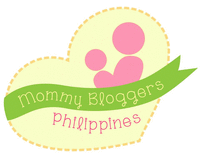With the sad news all around, everyone wants to help and donate something, may it be cash or in kind, to the victims of Typhoon Yolanda. Here’s a friendly reminder for all of us sending our care packages and goods for the calamity survivors. Please DO NOT donate the following items.
Noodles
Powdered Milk
Both noodles and milk need water for preparation and during calamities, in an evacuation site, there is limited to no source of potable water to use. Give ready to eat food instead.
During disasters, nursing mothers are advised to continue breastfeeding as it will protect infants from the risks of using contaminated water supply. Contaminated water , unclean feeding bottles and utensils may lead to diarrhea, which can be fatal for displaced families.
On Milk Code Executive Order No.51 Rules on donations:
Donation of products and materials defined and covered by the Milk Code shall be strictly prohibited.
Other donations which are given in kind or in cash by milk companies, their agents, and their representatives, must be coursed through the Inter-Agency Committee (IAC) for approval.
DOH sources pasteurized breast milk from milk banks and distribution are done by trained personnel. The health workers don’t just give milk but counsel the mothers by encouraging them to continue breastfeeding or do re-lactation.
Overhearing from the news, these are myths, sad to say, that even doctors and health practitioners believe – “stress makes the milk dry up” or “malnourished mothers cannot breastfeed”. To ensure adequate infant nutrition during emergencies, the mother should be feed, instead of giving babies formula.
Canned Goods in non easy open cans
These should be easy open cans as victims have no can openers. In donating canned goods or any type of food, please check on the expiry dates as we don’t want the recipients we are helping to get ill.
Expired medicines
Prescription drugs
Opened solutions for wounds
This is worst than expired food. Expired medicines are ineffective or may make the victims sick. Recommended medicines to be donated are pain relievers such as paracetamol (or infant paracetamol for children), aspirin, ibuprofen, antihistamine tablets, anti-diarrhea medications, anti-fungal medications and wound solutions.
Dilapidated or Dirty Clothing
Clothes that are too thick, Clothes that are too sexy
Designer tops, shoes and handbags
It is alright to donate used clothes but make sure they are clean and wearable. Do not give thick clothes such as leather and bubble jackets. Give those that are suitable for Philippine climate. Donate blankets instead of comforters.
Victims also do not need swimsuits, gowns, cocktail dresses, costumes and office outfits. These are impractical clothing and they cannot wear these in an evacuation center. Victims need slippers instead of stilettos and high heels. Designer handbags also have no place in the disaster-stricken areas.
In donating underwear, make sure to donate new, unused, non fancy ones.
Cosmetic Soaps
Victims need anti-bacterial soaps and not cosmetic soaps. They also need necessities like shampoo, toothbrushes, toothpaste, and feminine hygiene products.
Broken toys
Non functioning Appliances
Toys are secondary necessity in the relief operations. Make sure to check if a specific group will be collecting and distributing them to the calamity victims.
Donations of refrigerators, TV sets and DVD players that do not work are useless. In the evacuation center, what they need are functioning gas burners or electric stoves for cooking meals.
According to Philippine National Red Cross, they prefer cash donations than small amounts of relief goods. As the victims need are truckloads of supplies, buying items in bulk can be cheaper and will be easier to sort as items bought are of the same kind. Please also BEWARE OF SCAMS. Be careful of making online donations and send them only through establish agencies and organizations.




